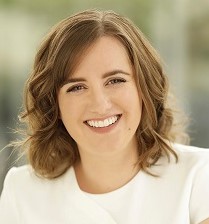Psychologists and Confidentiality – What can you Expect?
When it comes to Psychological services, the topic of confidentiality is riddled with heated debates, but one thing is for sure: psychologists take confidentiality more seriously than most people realise. Should a third party (e.g. insurance companies, lawyers, other health professionals) request a copy of the notes or any information, it is as if the psychologist becomes a warrior ready for battle, willing to go to great lengths to safeguard the confidentiality of information obtained from clients. This is of course to the complete disbelief and frustration of the above mentioned third parties or even to clients too. The most obvious next question is:
Why is it so difficult to obtain client information from a Psychologist?
There are many ethical reasons for this, which we will discuss below, but first, let’s consider the following: most professionals work according to some type of code of ethics, in that sense psychologists are no different, but the crux of the matter lies in the nature of the work carried out. People lay their heart and soul open to psychologists, often disclosing things they have never shared with anyone else: their struggles, fears and unspeakable pain. These intimate details of someone’s life are entrusted to psychologists with the belief that it will be safeguarded and handled with care. It is the psychologist’s duty of care to do so, especially in this metamodern era in which data/information is the new gold and the frequent news of cyber-attacks and data breaches remind us that unscrupulous people are working hard to go after it.
The topic of mental health has come a long way in recent decades. As a society, we are a lot more open and accepting about mental health than we were just a few years ago. Nevertheless, we cannot expect a psychologist to handle such highly emotive and sensitive information in the same matter of fact way as if it was someone’s dental records. Moreover, case notes of clinicians are often filled with abbreviations or shorthand that can be misunderstood by others. This can be likened to raw data of a research: nobody wants raw data; people are interested in the interpreted results. In other words, asking for case notes is like asking for raw data: it is useless without the interpretation of the psychologist who wrote it. Hence, psychologists usually offer a brief report or summary of the content of their notes instead. By this, psychologists aim to safeguard the client and their dignity by only sharing what is needed, avoid misinterpretation of their case notes, and interpret their observations in a meaningful and useful manner for third parties.
In terms of confidentiality, Psychologists in Australia are bounded by the following legislations:
- The Commonwealth Privacy Act (1988)
- State Health Records Acts and
- Higher Education Support Act (2003) (APS: 2016)
It is the clinician’s responsibility in the early stages of therapy to discuss confidentiality, explaining the nature of the services to be provided, and the possible scenarios in which the clinician is obligated to make a disclosure of the client’s information.
Limits of Confidentiality
Confidentiality is not absolute, there are circumstances when psychologists must disclose information due to risk of harm or superseding ethical considerations (APS: 2016). See below exceptions when psychologists are obligated to disclose information about their client:
- Mandatory reporting of child abuse and neglect. This includes the child witnessing incidents of domestic violence.
- May be required to disclose information that affects national security.
- Court-directed reports may require disclosing client information.
- In Medicare-rebated services it is obligatory to send a brief report to the GP.
- A subpoena compels clinicians to attend court or provide client records to the court – although this can be challenged by the psychologist (APS: 2016)
In addition, release of information may happen due to:
- Consent from client, as per client’s request or parent/guardian or client. This includes guidelines outlined on consent orders regarding parenting arrangements, or
- When consulting colleagues in professional supervision or training, but concealed the identity of the client and all other parties involved
Case notes
Psychologists are to keep client files for seven years from last contact. In case of clients under the age of 18 years, clinicians are to retain the client’s records until they reach the age of 25 years (APS:2016). Psychologists are obligated to dispose client files in a safe and confidential manner and keep record of how and when it was carried out (APS:2016).
Storage
Psychologists are responsible for maintaining the confidentiality of the information obtained during collection, recording, accessing, storing, sharing or disposal. This obligation remains in place even after the clinician may leave the work setting in which the service was provided or they cease to provide services (APS: 2016).
Consent to share information with other professionals
Clients and third parties are often frustrated when requests for sharing information is met with hurdles and delay, but there is a simple way around it: consent forms. However, not just any kind of consent form. Technically speaking, an appropriate consent form will:
- Address the psychologist by name
- Have the client’s original signature on it
- And the psychologist is sent the original in the mail
- Name the person(s) that the client gives permission to share information with
- Psychologists usually prefer to give their own consent form to their client and at the same time discuss what they give the psychologist permission to share
Let’s review some of the most important ethical considerations around confidentiality:
- Everything is confidential, but there are limitations, such as risk of harm, subpoena, court reports
- If a client would like the psychologist to share information with a third party, an appropriately written consent helps with the process to release information
- Parents may have the right to access their child’s case notes, but it is worth considering the child’s rights to confidential treatment
Co-Author: Sharyn Jones, B Psych (Hons).
Sharyn Jones is a Brisbane psychologist with 10 years of experience working with adults, adolescents, children and their parents.
To make an appointment with Sharyn try Online Booking. Alternatively, you can call Vision Psychology Wishart on (07) 3088 5422 or M1 Psychology Loganholme on (07) 3067 9129.
Co-Author: Katalin Mezei, BA (Hons) Psych & Crim, G. Dip Psych, MSc Health Psych
 Katalin Mezei is a Psychologist now based in Brisbane, having completed my undergraduate and Master’s training in the United Kingdom. My aim is to help people identify my clients’ core values and help them live according to them.
Katalin Mezei is a Psychologist now based in Brisbane, having completed my undergraduate and Master’s training in the United Kingdom. My aim is to help people identify my clients’ core values and help them live according to them.
To make an appointment with Katalin, you can Book Online, or call Vision Psychology Wishart on (07) 3088 5422 or M1 Psychology Loganholme on (07) 3067 9129.
Reference
Australian Psychological Society (2016). Ethical Guidelines on Confidentiality. Melbourne: Australia.